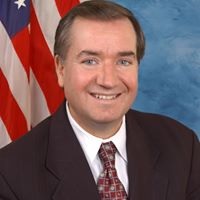Rep. Royce Explores Negative Impacts of Dodd-Frank on U.S. Capital Markets
Washington, D.C. – (RealEstateRama) — U.S. Representative Ed Royce (R-Calif.) questioned witnesses on the impact of the Dodd-Frank Act on asset-backed securities (ABS) at a hearing entitled “The Impact of the Dodd-Frank Act and Basel III on the Fixed Income Market and Securitizations.”

“When you suggest that $200 billion of commercial mortgage-backed securities will require refinancing over the next two years, what would happen to borrowers if CMBS lending is insufficient to cover that need or that sum?” asked Rep. Royce.
“Basically the borrowers become more in distress. They have to go to a different type of lender. The CMBS lender is a very efficient lender that gives them best price and proceeds. It also provides them with a ten-year fixed loan that is non-recourse in nature. If they have to go to a different lender to refinance their asset when their loan comes due, they are probably going to go to a lender that can only provide them a shorter term, perhaps a floating rate loan, which will require recourse. All those things mean, to cut through the technicalities, that borrowers are not going to be able to borrow as much for their asset. They’re going to have to put up more equity, and if they can’t do that, they’re going to be in default,” replied Mr. Stephen Renna, President and Chief Executive Officer of the Commercial Real Estate Finance Council.
“What would the economic impact be for pension funds or life insurance? When you look at constituents out there, how would that affect them?” continued Rep. Royce.
“The performance of the bonds is what the pension funds and life insurance companies are interested in. If the underlying mortgage is not performing because when they come up to refinance and they have difficulty refinancing, then their investment is going to suffer as a result of that. Going forward, when they want to go and reinvest in those types of CMBS bonds that provide them the risk-adjusted return they’re looking for, there’s not going to be as much of that in the market place to… provide them with the cash flow they need with respect to beneficiaries,” said Renna.
“As you know, European regulators are considering a ‘high-quality securitization’ framework that could differ from the U.S. rules. It appears that in Europe they recognize that the current rules under consideration may be ‘too onerous’ to support a liquid ABS market. If we don’t have global convergence on these rules, what would that impact be on the U.S.?” asked Rep. Royce, who serves as Chairman of the House Foreign Affairs Committee.
“If Europe just goes it’s own way, then you’ll see European collateral get the capital relief. European investors get to take that capital relief. So consequently they’re incentivized just to invest in Europe, while the U.S. investor base will remain permanently based in U.S. assets. It segments a global market. If you see Basel IOSCO take route, then all investors across the world, except for the U.S. right now, potentially could get this capital relief. Meaning that they now can get a higher rate of return by investing in the same products relative to what a U.S. investor might be. That means you’re going to see more non-U.S. investors investing in the U.S economy. I don’t think that’s a good thing if you expand to what happens if we see another crisis and another bailout mechanism. What we saw last time was when local governments came in and gave money to their local banks, there was a stipulation attached that they could only then relend it within that jurisdiction,” replied Mr. Richard Johns, Executive Director of the Structured Finance Industry Group.
“So the European Commission created a ‘Better Regulations Task Force,’ that includes a public call to review financial regulations and to consider ways to recalibrate rules to support market liquidity, lending, and economic expansion. Doesn’t it make sense for us to do the same?” asked Rep. Royce.
“It makes absolute sense. We’ve got a lot more to lose considering how liquid our markets are to begin with,” concluded Johns.
“There definitely needs to be an alignment between the U.S. and Europe and how they are applying these types of standards. Capital markets are global, they are not just American or European, they’re global. There needs to be harmonization between the two,” added Renna.
Watch Rep. Royce’s questioning of the witnesses here or by clicking below:
Contact: Saat Alety (202-225-4111)
Source: U.S. Representative Ed Royce


